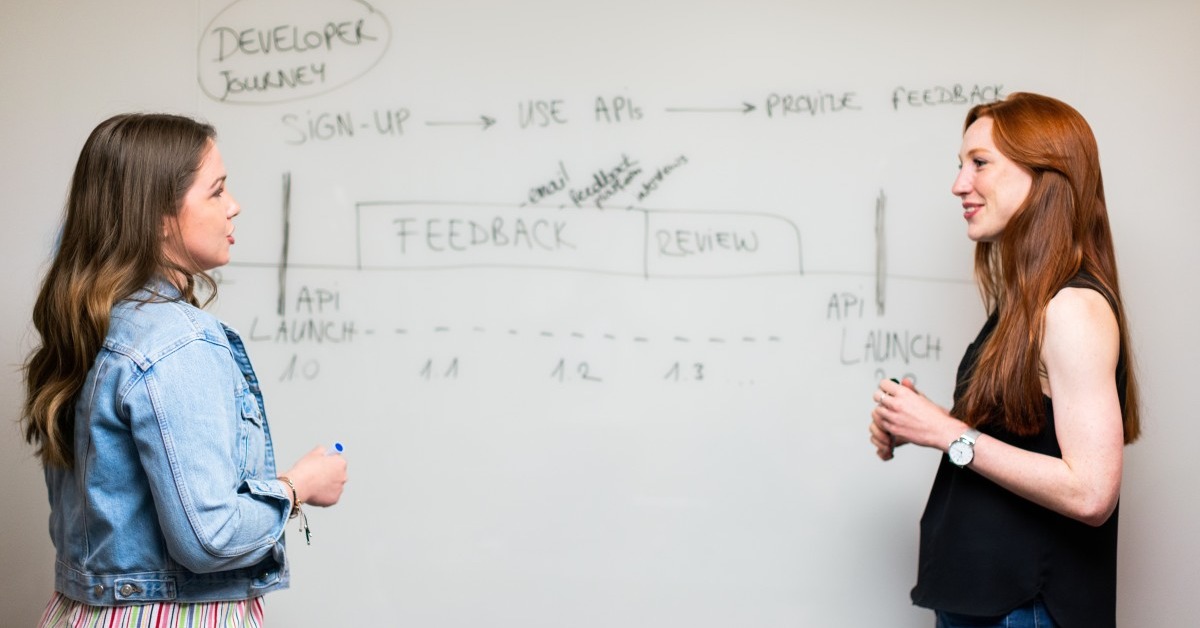
Master's in Elementary Education Salary: How Much More Will You Make?
Getting an MAT or an MEd in Elementary Ed can [...]
The path to becoming a certified teacher in Virginia can be confusing and time-consuming.
That’s because there is no national or standardized route to certification. Each state has its own rules and regulations, so there are many different options to pursue depending on your background and interests.
How do you navigate the complicated maze of coursework, requirements and certification?
We’re here to make things as simple as possible. We’ll give you the key information to determine the right path for you, and understand what it takes to Teach in Virginia.
Like most states, Virginia has the expected fare of requirements for obtaining licensure. Requirements such as needing a BA from an accredited institution, passing a criminal background check, and taking relevant subject exams are pretty common. But becoming a teacher in Virginia involves more than becoming a teacher in nearby Washington DC, or another state. The Virginia Department of Education – which happens to be the governing body for teacher licensure – requires additional criteria from teachers. Additional criteria includes having to pass courses on CPR and First Aid, completion of a Child Abuse and Neglect Recognition Training program, and more recently, completion of a newly added program on Dyslexia Awareness. These additional teaching requirements are not typically found in other states but you will need to complete these to become a licensed teacher in Virginia.
With these additional requirements, you’ll want to check frequently with the Virginia DOE website to make sure you are up to date with what’s required. The good news is that many of these programs can be taken in on-line modules at no cost. You can find all that information here:
The following is a list of all the requirements you’ll need to complete in pursuing a teacher’s license in Virginia.
You can download the full licensing application from the Virginia Department of Education (www.doe.virginia.gov/teaching/licensure/application.pdf). This must be printed out and sent along with payment to the address provided within the PDF.
Like most states, the state of Virginia utilizes a two-step system of licensing. The first tier of licensing involves obtaining what is called an initial or Provisional License. This license is valid for three years and is non-renewable. The four basic requirements for licensure – not including the extras and a criminal background check are:
The above requirements can be pursued through traditional and alternative teacher education pathways as long as they are state approved. Upon completion of the coursework (meeting minimum ours), passing the relevant tests including subject area exams, a student teaching experience, as well as any additional training programs required by the state, a permanent license is granted.
Student teaching internships are typically offered and completed through a degree-seeking state approved teacher education program at a college or university. Interns receive placement in an accredited school and receive mentoring by an experienced educator for a minimum of 300 clock hours. The sponsoring university or college also evaluates the intern for competency.
In lieu of a supervised teacher intern experience, one year of full-time teaching experience in a subject area or accredited non-public school may also be accepted. A fully licensed teacher must be assigned to any aspiring educator pursing this alternative route.
Virginia offers two tracks to teacher licensure. The first one is the more traditional track. Students here pursue an approved undergraduate teaching program from a college or university. Graduates of these programs complete a teaching internship while enrolled in school, and are typically eligible for their license upon completion of the program. Here is a list of Teacher Preparation Programs approved by the Virginia Department of Education: https://www.doe.virginia.gov/teaching/eudcator_preparation/college_programs/index.shtml.
The seconds track is the alternative teacher training track. Also somewhat unique to Virginia, Virginia offers a Career Switcher Program. This program was created in 1999 to provide alternative pathways to aspiring educators who had not completed a traditional teacher preparation program but who had considerable life experiences, career accomplishments and academic backgrounds relevant to teaching. You can learn more about alternative tracks to teaching and the Career Switcher Program here: www.doe.virginia.gov/teaching/educator_preparation/career_switcher/index/shtml
Becoming a teacher in Virginia requires you pass educator exams for full licensure. Knowing which exams to take and when to take them can get confusing. Here’s the easy part. If you are currently enrolled in an educator preparation or undergraduate teaching program, your academic coordinator should be able to guide you about your testing requirements and the timing of your exams. Some programs advise students take the exams at a particular point in their training.
For students who delay their education, stop and start their teacher training, or pursue an unorthodox path, you can take these tests on your own timetable. But whatever path you find yourself on, you must take and pass these tests before applying for the initial provisional license.
All Praxis tests are administered by an independent organization called the Education Testing Service.
Reading Assessment – required for these specific areas Elementary and Special Education, Special Education General Curriculum, Special Education Hearing Iporiirments, Special Education Visual “Iproiarments, Reading Specialist.
Virginian Communication and Literacy Assessment – this is a relatively new exam for any aspiring applicant seeking an initial license. This test is only viable through computer-based testing. To learn more about how to take this test, you can visit this website: www.va.nesubc.com or contact Evolution Systems Pearson at (866) 256 – 2888.
Questions or feedback? Email editor@noodle.com

Getting an MAT or an MEd in Elementary Ed can [...]

As a math teacher, you may qualify for higher pay [...]

According to Zippa, salaries for school principals range from under [...]

PhDs in many disciplines work almost exclusively in academia. Not [...]

Adding a second graduate degree to your JD can position [...]
Categorized as: Teaching, Education & Teaching